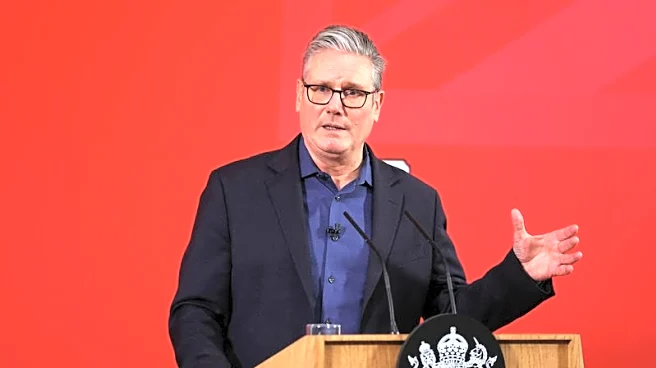What's Happening?
The Trump administration, led by Federal Housing Finance Agency Director Bill Pulte, is considering the introduction of a 50-year fixed-rate mortgage. This proposal aims to address housing affordability issues by extending the amortization period, thereby
reducing monthly payments for homebuyers. The plan has sparked mixed reactions, with supporters praising its potential to make homeownership more accessible, while critics argue it could increase long-term debt and interest costs. The proposal comes amid rising housing prices and affordability concerns, with President Trump emphasizing his commitment to lowering costs for homebuyers.
Why It's Important?
The introduction of a 50-year mortgage could significantly impact the U.S. housing market by altering the standard mortgage terms established during the New Deal era. While it may lower monthly payments, it could also lead to increased total interest costs and prolonged debt obligations for homeowners. This proposal reflects ongoing efforts to address housing affordability, a critical issue as home prices continue to rise. The plan could benefit young homebuyers by making homeownership more feasible, but it also raises concerns about long-term financial stability and the potential for increased profits for banks and lenders.
What's Next?
Further details about the 50-year mortgage plan are yet to be disclosed by the Trump administration. The proposal is likely to face scrutiny from political leaders, financial experts, and civil society groups, who may debate its implications for the housing market and broader economic policy. The administration's focus on affordability solutions suggests ongoing efforts to develop policies that address the challenges faced by prospective homebuyers. Stakeholders will be watching closely to see how this proposal evolves and whether it gains traction in the political and economic landscape.
Beyond the Headlines
The proposal to introduce a 50-year mortgage raises ethical and economic questions about the long-term impact on homeowners and the housing market. Critics argue that extending mortgage terms could trap individuals in debt for most of their lives, potentially exacerbating financial inequality. The plan also highlights the tension between government intervention in the housing market and the principles of fiscal conservatism. As the administration seeks to balance affordability with economic stability, the proposal may prompt broader discussions about the role of government in shaping housing policy.

















